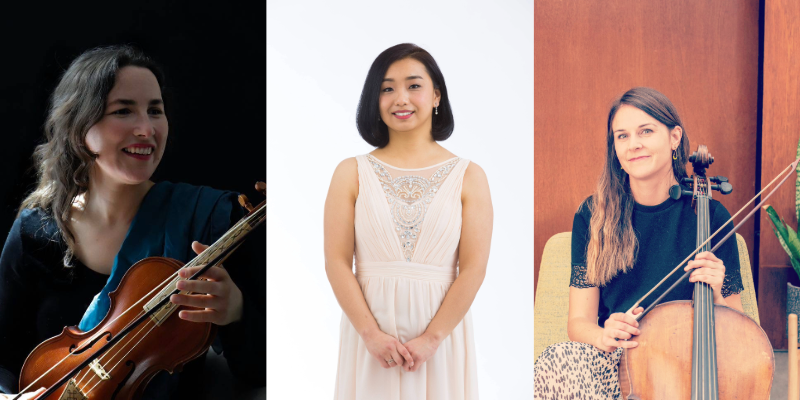
London Obbligato Collective
Event details
Sara Deborah baroque violin
Carina Drury baroque cello
Masumi Yamamoto harpsichord
Programme to include:
Felice Giardini Sonata for Harpsichord and Violin in D, op. 3, no. 6
JC Bach Sonata for Harpsichord in A, op. 2, no. 5
Established by the acclaimed London-based harpsichordist Masumi Yamamoto, the newly formed London Obbligato Collective, comprising musicians from leading period-instrument ensembles, focuses on ‘accompanied harpsichord sonatas’, a unique genre in which the harpsichord is given the solo role within the trio sonata texture, highlighting and enriching the colours and nuances of the instrument. During the second half of the eighteenth century, solo harpsichord sonatas were very popular in England, but they were considered to be music for the home. Adding instruments allowed for a more public genre, bridging the gap between private music-making and larger orchestral works. The programme includes music by Felice Giardini, Johann Christian Bach and Carl Friedrich Abel. All three composers contributed to this interesting repertoire for harpsichord and additional instruments, and through these works, the programme illustrates the changing tastes of society in the thriving musical city of London during this period.
Baroque+ Day: London Calling!
Staff, students and alumni of the University of York celebrate the cultural mecca that was eighteenth-century London in their annual mini-festival. York alumna Dr Masumi Yamamoto, Continuo Professor at the Guildhall School of Music and Drama, leads the London Obbligato Collective in a performance of rarely heard works for harpsichord, violin and cello by Giardini, JC Bach and Abel. York lecturer and rising star of the Early Music scene, Mary-Jannet Leith explores the craze for Scottish music and the expression of Scottish musical identity in London. Finally, University Baroque Ensemble depicts the spell cast over the London public by Italian music, in a programme of concerti grossi by Arcangelo Corelli, his student Avison and that most influential of immigrant musicians, Handel.
